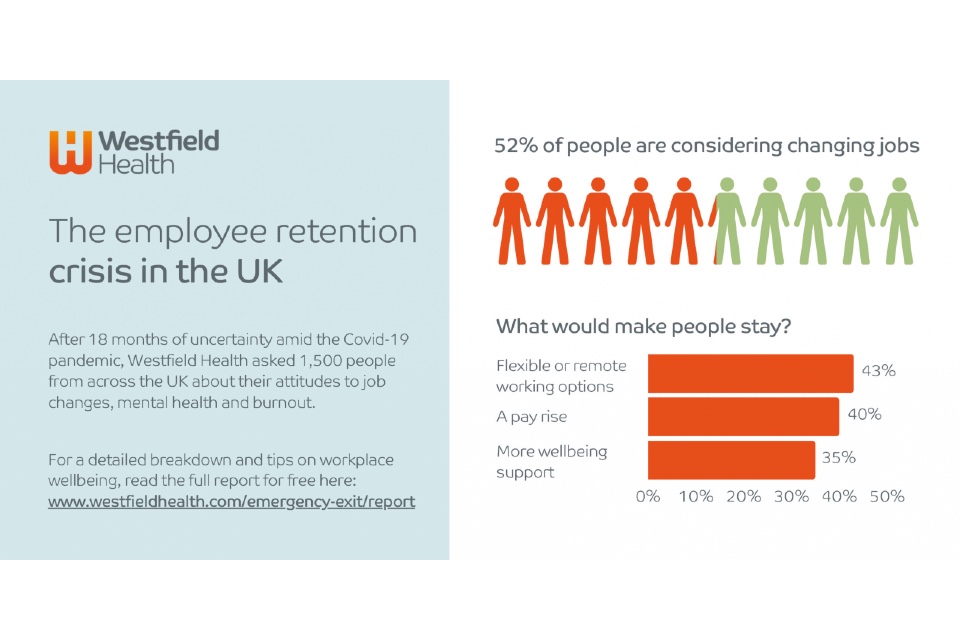As the UK learns to live with the Covid-19 pandemic, employees are considering how their working lives have changed in the new normal. But with economic recovery at the top of many business agendas, leaders who neglect employee wellbeing may find that their top talent is looking to change jobs.
In a research report by Westfield Health, Emergency Exit, they asked 1,500 people from across the UK how they feel about their job, their mental health and burnout.
The results revealed that 16 million workers will be looking for a new role in the next six months, and mental health is a driving factor for 59% of them. The cost of recruiting their replacements will set UK businesses back by £48.2bn in recruitment fees alone — a significant impact on the bottom line for those already stretched.
With so many workers looking to change roles, business leaders who focus on improving their employer brand will be able to keep their best people and attract new talent.
Only 17% of those looking to leave said there’s nothing that could be done to make them stay, suggesting an opportunity for employers to put new measures in place and improve the employee experience. The top three most coveted improvements were:
- Flexible or remote working options (43%)
- A pay rise (40%)
- More wellbeing support (35%)
It’s clear that flexibility is a key priority for many workers and, while leaders may be keen to return to business as usual, they should bear in mind that their people may vote with their feet.
During this period of uncertainty, HR teams must keep communication channels open to ensure their people are able to work at their best. To help their people feel supported, organisations should focus on resilience and culture change which helps both the wider workforce and individual needs.
To read more about the findings and how employers can improve their working conditions to prevent a talent drain, download the free Emergency Exit report.









